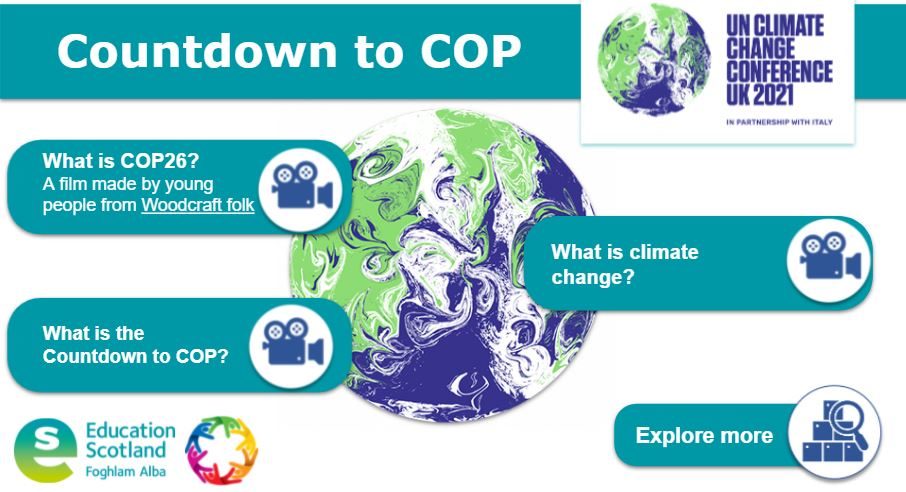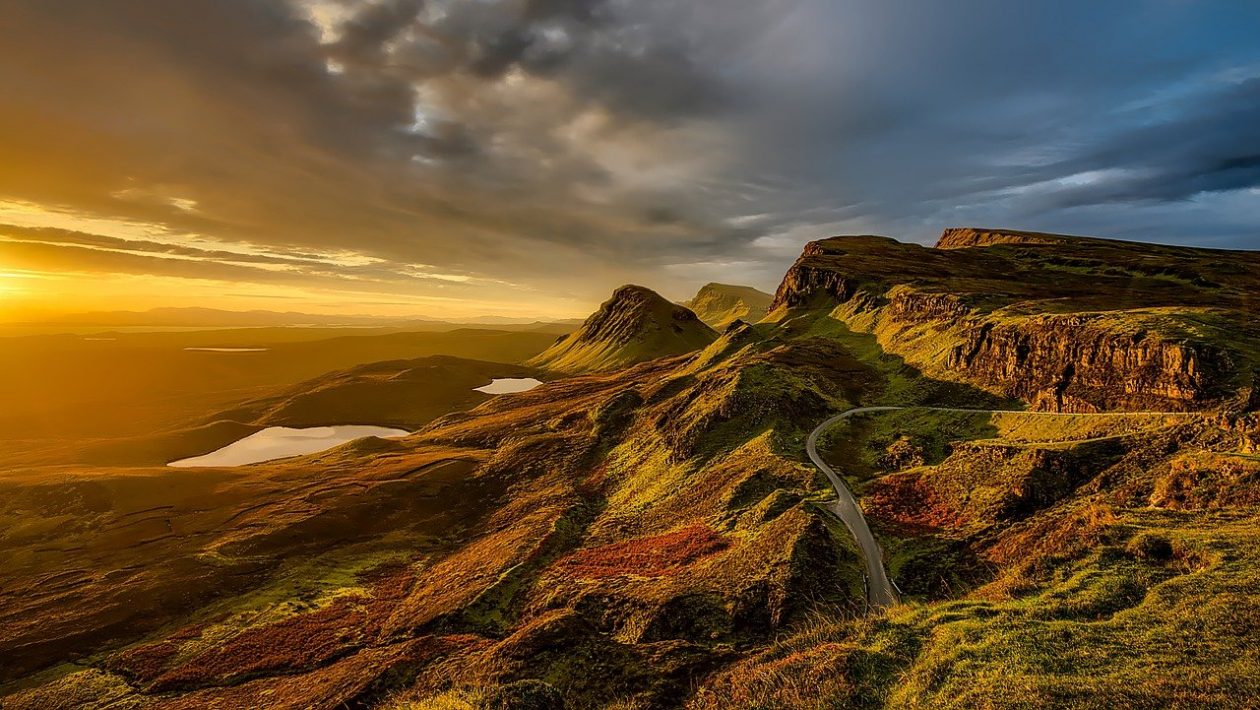 The United Nations COP26 Climate Summit starts on 01 Nov 2021. That means there is just over one month to go to one of the biggest events ever hosted in Scotland. The aim for the 200 world leaders in attendance will be to reach agreement on tackling the global climate emergency by limiting greenhouse gas emissions to 1.5 degrees above pre-industrial levels.
The United Nations COP26 Climate Summit starts on 01 Nov 2021. That means there is just over one month to go to one of the biggest events ever hosted in Scotland. The aim for the 200 world leaders in attendance will be to reach agreement on tackling the global climate emergency by limiting greenhouse gas emissions to 1.5 degrees above pre-industrial levels.
Education Scotland has been working closely with key partner organisations to provide support and resources to help education settings and learners engage in the five key climate education themes of the COP26 Conference: nature, clean transport, energy transition, finance, adaptation and resilience.
Resources and support can be accessed via the Countdown to COP page on Education Scotland’s National Improvement Hub. https://education.gov.scot/improvement/learning-resources/countdown-to-cop26/
This includes access to the following elements:
- A COP26 Wakelet collection – bringing together some of the best COP26 resources from partners around the world
- Early Years – See Dug’s Discovery Den ThingLink resource and eBook of Dug’s visit to Arran
- Primary – A ThingLink resource for learners covering all five COP26 themes and accompanied by a practical guide for teachers
- BGE Secondary – Countdown to COP resource for learners in S1 to S3.
- New! – We’ve also now added COP26 challenges to encourage learners to develop creative and innovative solutions to climate change.
You can also join our Countdown to COP Developing the Young Workforce (DYW) Live sessions being run by Education Scotland in partnership with Founders for Schools and e-Sgoil. These live and recorded sessions provide an insight into a wide variety of green jobs linked to COP themes: https://www.e-sgoil.com/countdown-to-cop26/ . Live sessions are running Fridays at 11:00am through to the start of COP26.
Scotland’s Assemblies – these live and recorded assemblies are a great way to introduce learners at First and Second Level to COP themes: https://e-sgoil.com/p2-7/ . Join us for our next COP assembly at 09:45am on Friday 1 October.
Learning for Sustainability Practitioner Network – connect, network and share ideas with over 300 other like-minded practitioners on MS Teams in Glow. Joining code: o4sj08j
Twitter – Follow us @EdScotLfS and visit our LfS blog for the latest updates
Don’t forget! The work doesn’t stop at the end of COP! Education Scotland is asking every school and setting to build a lasting legacy for the COP26 conference by ensuring that all learners in Scotland receive their entitlement to Learning for Sustainability, an entitlement that is embedded within Scotland’s curriculum. Find out about the wide range of resources and professional learning support available through the following pages:
- Learning for Sustainability summary page: https://education.gov.scot/improvement/learning-resources/a-summary-of-learning-for-sustainability-resources/
- Outdoor learning summary page: https://education.gov.scot/improvement/learning-resources/a-summary-of-outdoor-learning-resources/
- Climate change in Scottish education briefing: https://education.gov.scot/improvement/self-evaluation/climate-change-in-scottish-education/








